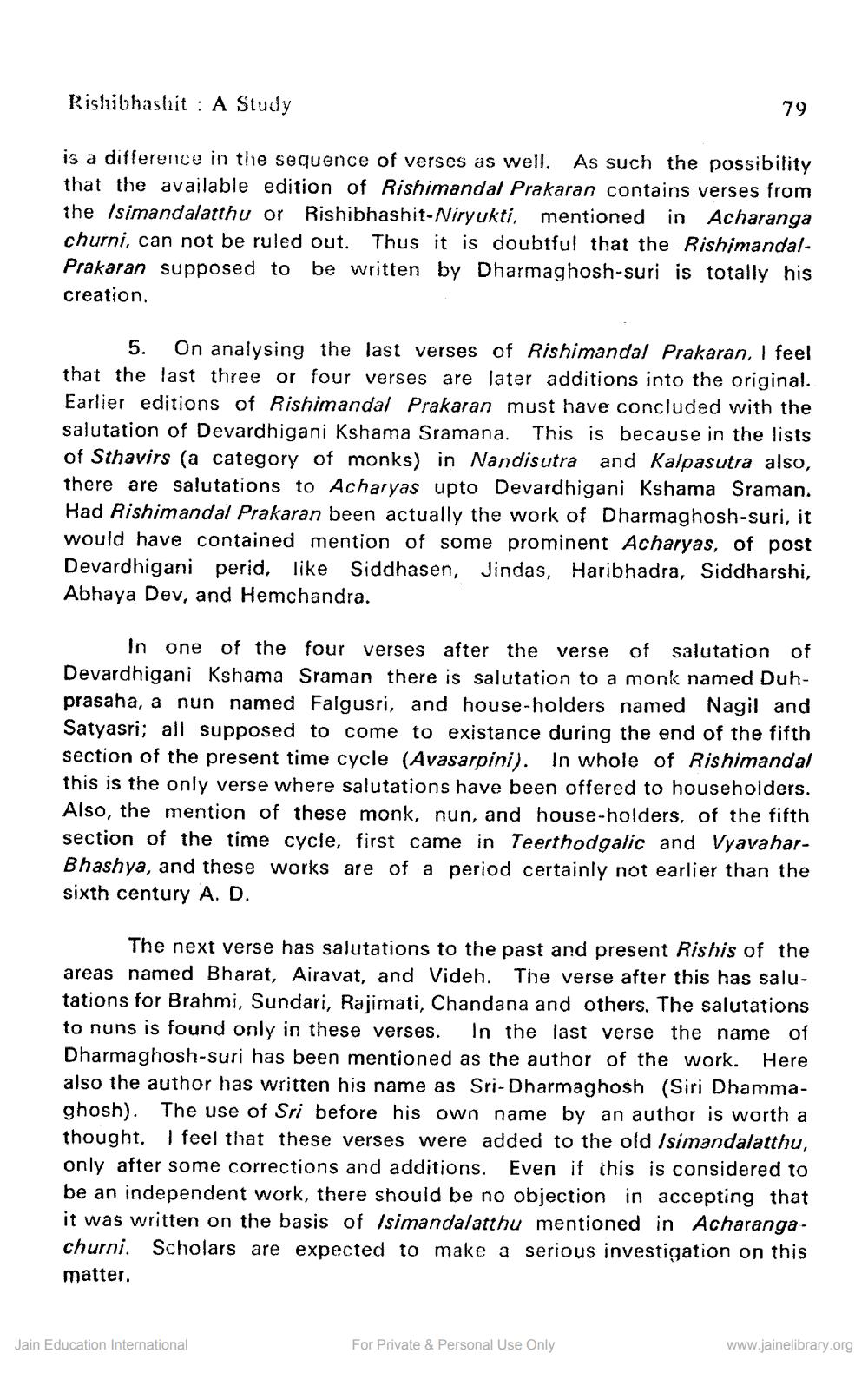________________
Rishibhashit: A Study
is a difference in the sequence of verses as well. As such the possibility that the available edition of Rishimandal Prakaran contains verses from the Isimandalatthu or Rishibhashit-Niryukti, mentioned in Acharanga churni, can not be ruled out. Thus it is doubtful that the RishimandalPrakaran supposed to be written by Dharmaghosh-suri is totally his creation.
5. On analysing the last verses of Rishimandal Prakaran, I feel that the last three or four verses are later additions into the original. Earlier editions of Rishimandal Prakaran must have concluded with the salutation of Devardhigani Kshama Sramana. This is because in the lists of Sthavirs (a category of monks) in Nandisutra and Kalpasutra also, there are salutations to Acharyas upto Devardhigani Kshama Sraman. Had Rishimandal Prakaran been actually the work of Dharmaghosh-suri, it would have contained mention of some prominent Acharyas, of post Devardhigani perid, like Siddhasen, Jindas, Haribhadra, Siddharshi, Abhaya Dev, and Hemchandra.
79
In one of the four verses after the verse of salutation of Devardhigani Kshama Sraman there is salutation to a monk named Duhprasaha, a nun named Falgusri, and house-holders named Nagil and Satyasri; all supposed to come to existance during the end of the fifth section of the present time cycle (Avasarpini). In whole of Rishimandal this is the only verse where salutations have been offered to householders. Also, the mention of these monk, nun, and house-holders, of the fifth section of the time cycle, first came in Teerthodgalic and VyavaharBhashya, and these works are of a period certainly not earlier than the sixth century A. D.
The next verse has salutations to the past and present Rishis of the areas named Bharat, Airavat, and Videh. The verse after this has salutations for Brahmi, Sundari, Rajimati, Chandana and others. The salutations to nuns is found only in these verses. In the last verse the name of Dharmaghosh-suri has been mentioned as the author of the work. Here also the author has written his name as Sri-Dharmaghosh (Siri Dhammaghosh). The use of Sri before his own name by an author is worth a thought. I feel that these verses were added to the old Isimandalatthu, only after some corrections and additions. Even if this is considered to be an independent work, there should be no objection in accepting that it was written on the basis of Isimandalatthu mentioned in Acharanga - churni. Scholars are expected to make a serious investigation on this
matter.
Jain Education International
For Private & Personal Use Only
www.jainelibrary.org




